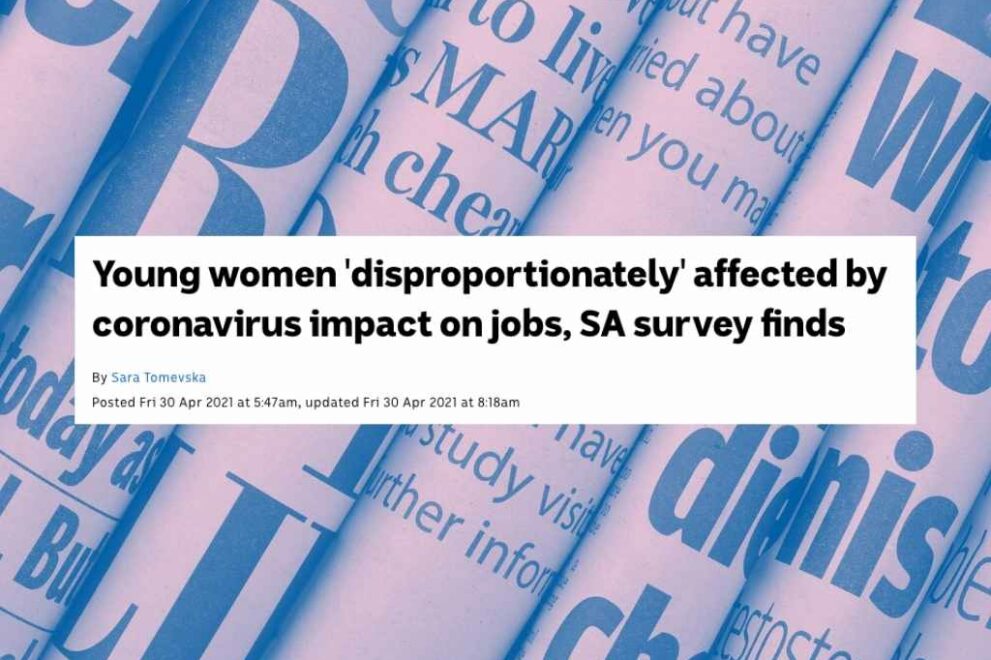Your cart is empty.


Your cart is empty.
30 Apr 2021 Campaigns

This article was published by ABC News Friday 30th April 5.47am 2021.
Read the full article on the ABC’s website here
A sample survey of South Australian women aged under 30 has revealed heightened anxiety and a lack of optimism about job prospects due to the global coronavirus pandemic.
Almost 300 women aged under 30 were surveyed by the Working Women’s Centre SA between September 2020 to February 2021.
More than 70 per cent of respondents said they had become “more anxious, sad or depressed” due to the pandemic, and 44 per cent said they were “discouraged” about the prospect of finding work.
“The social and economic ramifications of COVID-19 have disproportionately affected young women compared to other demographics,” the report stated.
More than half of respondents found “their way of working disrupted” and more than a quarter “had their hours or pay reduced”.
Nearly half said they were “very worried or anxious” about money.
“Between the time that SA’s first COVID-19 restrictions entered force in March 2020 and January 2021 all-male jobs had recovered, while female jobs remained well below pre-pandemic levels,” the report stated, citing Australian Bureau of Statistics data.
“This is a stark demonstration of the vulnerability of female jobs to disruption.
Working Women’s Centre youth project officer Maddie Sarre said the findings represented “a snapshot” of how young women in SA continued to be affected by coronavirus and its ongoing economic effects.
“On the other hand, those that continued to work during the pandemic faced increased pressure, through increased workloads and stress in frontline sectors such as healthcare.
“Unsurprisingly, 40 per cent of those who filled out our survey indicated they were worried about contracting COVID-19 whilst at work.”
International students and women with existing health issues or disabilities also reported higher rates of job losses, financial hardship and anxiety.
According to the federal Workplace Gender Equality Agency, “Australia’s labour market is highly gender segregated by industry and occupation” – a trend that has persisted for decades.
Ms Sarre said due to the “gendered” impact of coronavirus on feminised sectors, such as the arts, entertainment, retail and hospitality, a targeted response from government was appropriate.
“We have an opportunity through the COVID-19 recovery to improve the economic prospects of young women through the creation of secure jobs in sectors which employ a high proportion of women,” Ms Sarre said.
Ms Sarre said the aim was not to focus less “on male-dominated sectors, but we’d just like to see that matched with job creation in female-dominated sectors”.
“As of March 2021, we still had over 8,000 job losses that women have experienced that haven’t recovered,” she said.
“So there’s still a lot more to be done.”
A State Government spokesperson said its $200 million skills training package had “introduced paid learning pathways for industries dominated by women and also seen women entering male-dominated apprenteships and traineesships in greater numbers”.
“The latest ABS data shows female employment increased by 5,100 during March to 408,600 as unemployment fell by 0.6 of a percentage point to 6.0 per cent,” the spokesperson said.
“South Australia leads the nation in on the job training that is enabling women and men to earn as they learn.”